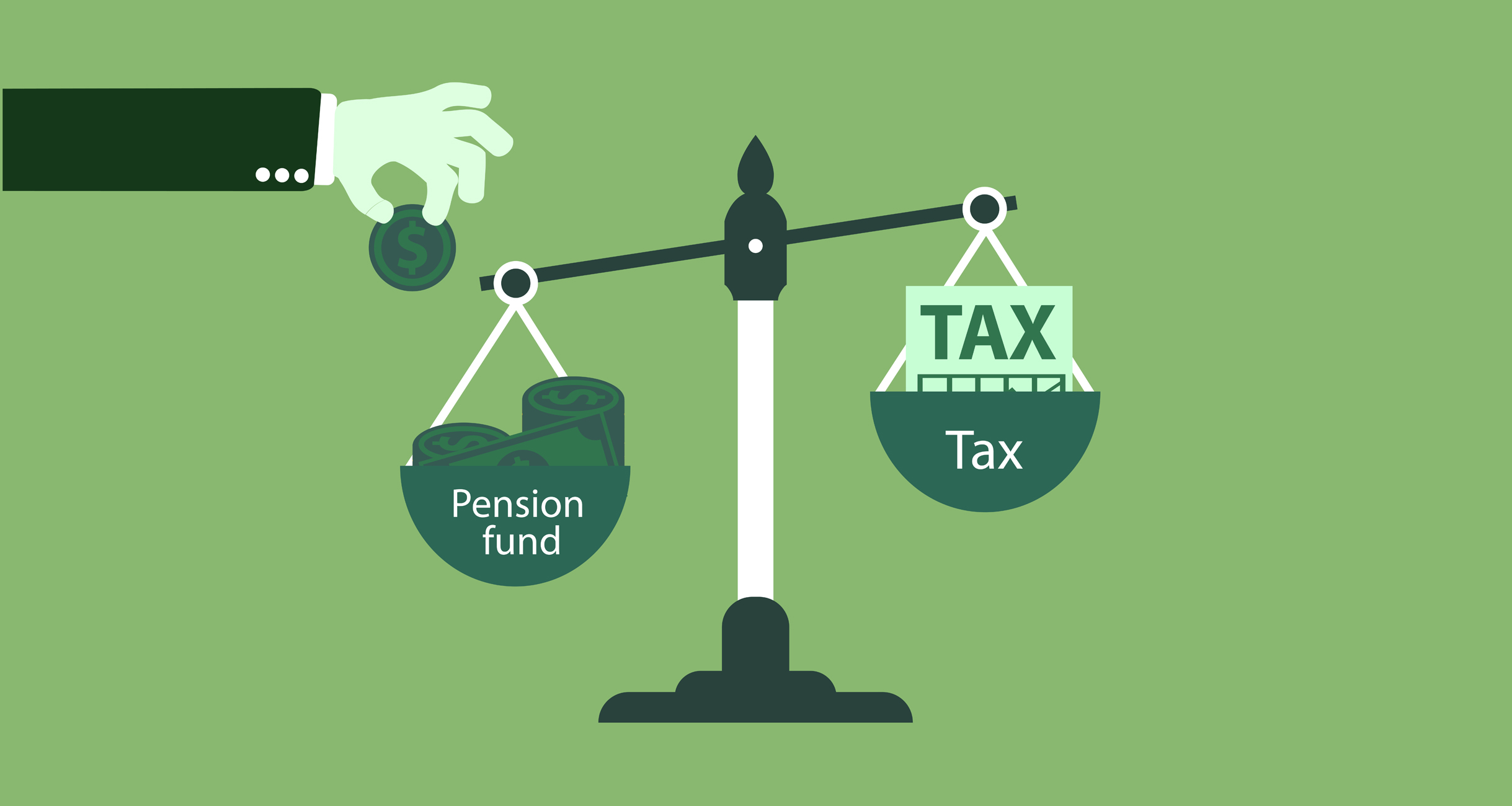It’s not uncommon for most employer-sponsored pension plans to be qualified. To put that in layman’s terms, they meet Internal Revenue Code 401(a) and Employee Retirement Income Security Act of 1974 (ERISA) requirements. As such, they have tax-advantaged or tax-deferred status. Are pensions taxable, yes. Lets explain more to fully understand.
For employers, they’ll snag a tax break on the contributions that they make to their employee’s plans. Don’t get jealous if you’re an employee; the contributions you make come “off the top” of your paychecks — that means these are taken out of your gross income — before taxes.
Why does that matter?
The way the funds come out of your paycheck reduces your taxable income. In turn, that means the amount you owe the IRS on April 15 isn’t as much.
Moreover, funds placed in a retirement account can grow at a tax-deferred rate. For the uninitiated, that means taxes aren’t due on them if they remain in the account and are not withdrawn.
Both types of plans let employees defer taxes on their retirement plan’s earnings until withdrawals begin. As a result, this permits the employee to reinvest dividend income, interest income, and capital gains. Having the ability to reinvest these funds is a big deal considering that these often generate a higher rate of return before retirement.
When you retire, you’ll begin to receive funds from a qualified pension plan. As you begin to withdraw your funds is when you have to pay federal and state income taxes.
What if you don’t have any investments in the plan? Maybe you don’t have an investment in the plan because you haven’t contributed anything, your employer hasn’t withheld contributions, or you have received all of your contributions. In these situations, your pension is fully taxable.
What if you contributed money to your plan after taxes were paid?
If you contributed money to your pension plan or annuity after taxes were paid, your plan would only be partially taxable. Usually, you don’t have to worry about the taxes on the after-tax return amount you’ve put into the plan.
FYI, the partially taxable qualified pensions will be taxed under the Simplified Method.
Can pension plans be changed or terminated?
Short answer? Yes. Pension plans can be changed. Your pension plan can be changed because employers fund and maintain this retirement account, and they have the authority and power to make changes to pension plan payouts.
For example, an employer might adjust the rate that employees can earn in future benefits. If you accumulated $10 per month in benefits, in the beginning, your employer might change your benefit to where you only accumulate only $5 per month.
Fortunately, this will not reduce the benefits that have already been accumulated. Using the figures above, that means you would have $50 per month in benefits before the change. Afterward, that would go to $55 per month when you reach six years of service.
“Pension laws leave a lot of discretion to the employer in determining benefits it will offer,” writes Sean Butner for The Nest. “Employees and current retirees have a non-forfeitable right to their accrued benefits once they’ve vested. Employer contributions vest according to a set schedule, which can be five to seven years at the longest.”
Pension plans can also be terminated.
“Beyond that, employers can make changes that affect retirees already receiving their pensions,” adds Butner.
For instance, you may have a pension that keeps you on your company’s health insurance plan when you retire. But, your former employer may decide that keeping you on the insurance plan is too expensive and discount the benefit by eliminating your insurance benefit.
“Sometimes the company’s assumptions about pension costs and contribution returns are wide off the mark,” Butner states. “If the employer can’t make up the unfunded liability out of pocket or by adjusting the plan, it might lead the company into bankruptcy.
Retirees whose private-sector employers terminate an insufficiently funded plan might be able to recoup some of their pension benefits through the Pension Benefit Guaranty Corporation.”
If a company goes bankrupt, it means your benefits have been terminated. There is a silver lining, though. You’ll still receive whatever you’ve earned up until that point. However, you will not be able to accumulate any additional pension income because, in bankruptcy, all funds are frozen.
- What is a pension plan?
- How does a Pension Plan Work?
- How a pension works
- The Move to Defined-Contributions
- Annuity
- Are pensions taxable?
- The Difference Between a Pension and a 401(k)
- The History of the Pension Plan
- The Link Between Your Pension and Your Job
- How to Find Old 401(k) and Pension Accounts
- Vesting Your Pension Funds
- It’s SEP to You
- Do You Really Need a Pension?
- How Much Should You Contribute to Your Pension Plan?
- How Much are You Allowed to Contribute a Pension Plan?
- Where’s My Money?
- Calculating the Value of Your Retirement Fund
- Common Causes of Errors in Pension Calculation
- Can I Tap My Pension Plan Early?
- Monthly Annuity or Lump Sum?
- Are There Any Risks Involved With Pensions?
- What Happens With My Pension When I Retire?
- What Happens to Your Pension if You Die?
- Can You Have a Pension and 401(k) and IRA?
- Final Retirement Tips




